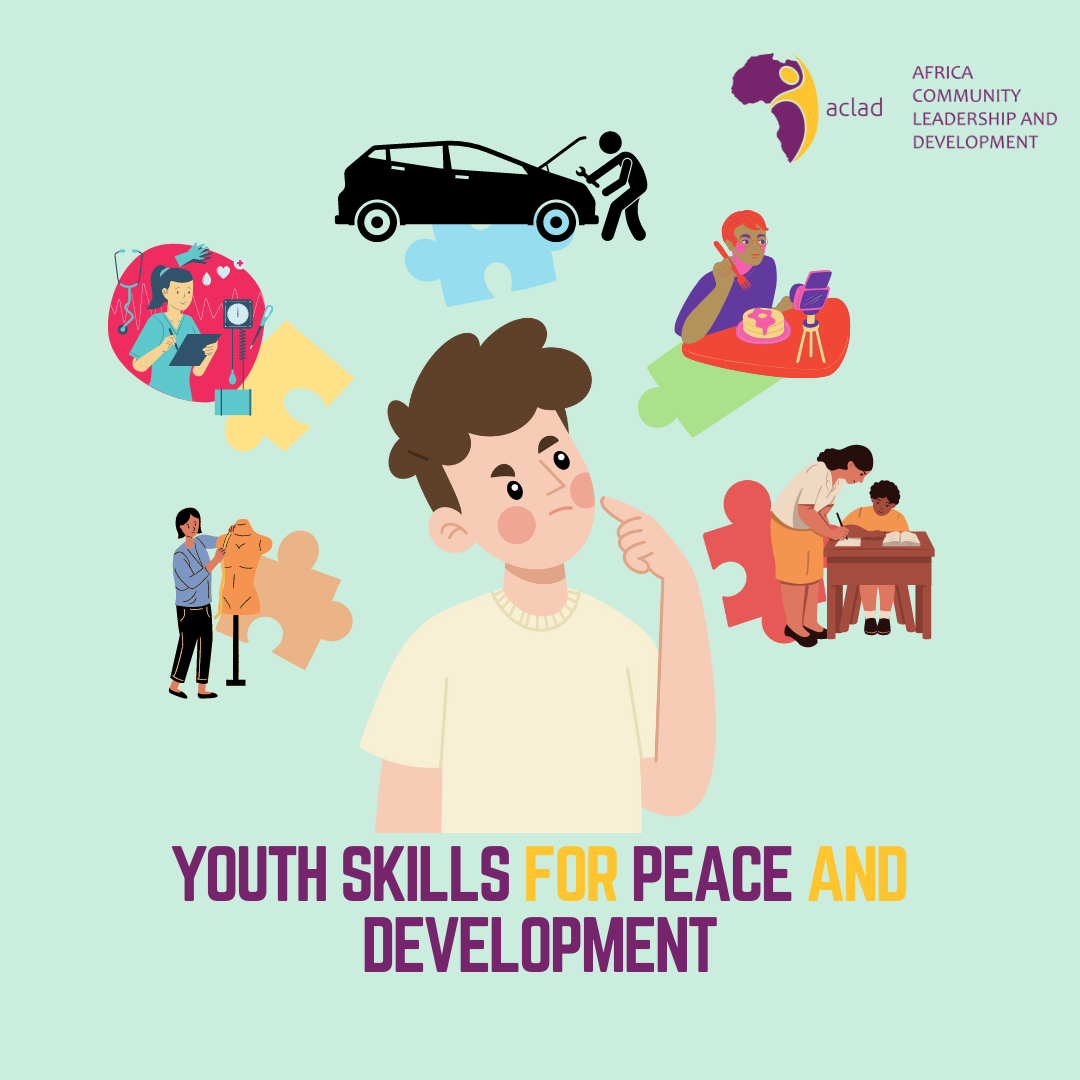Youth Skills for Peace and Development

On the 15th of July 2024, World Youth Skills Day was marked with the theme Youth Skills for Peace and Development. These skills for peace and development encompass various competencies that empower young people to contribute positively to society, thereby promoting peace and sustainable development. The key areas can include:
- Education and Training which can be Formal Education where access to quality education will equips youth with knowledge and critical thinking skills, Vocational Training whereskills in trades and professions enhance employability and economic stability or through Life Skills Education (like ACLAD’s Chagua Maisha or Stepping Stones for youth) whichteaching communication, negotiation, and conflict resolution skills which promotes peaceful interactions[1].
- Civic Engagement and Leadership through meaningful Youth Participation which encourages youth involvement in decision-making processes thereby ensuring their voices are heard (hoiyee Gen Zs) or Leadership Training Programs that develop leadership skills and help youth take on roles in community and national governance.[2]
- Economic Empowerment Entrepreneurship: Training in entrepreneurship enables youth to create job opportunities for themselves and others. Financial Literacy: Understanding financial management is crucial for personal and community economic stability.
- Social Inclusivity Programs: Initiatives that promote the inclusion of marginalized groups ensure all youth regardless of their physical or mental status have equal opportunities. Community Building Activities that foster community cohesion and understanding which in turn reduces societal tensions.
- Peacebuilding, Conflict Resolution and Mediation Training: Skills in mediating and resolving conflicts peacefully are essential for maintaining peace. Peace Education: Teaching about the roots of conflict and strategies for peace helps prevent violence.
- Environmental Stewardship and Sustainability Education: Knowledge about environmental issues and sustainable practices ensures long-term development and environmental protection. Youth-Led Environmental Initiatives empower youth to lead environmental projects that promote responsibility and innovation (such as the planting of African Leafy Vegetables by the youth participating in Chagua Maisha for their sustenance and teaching them about business and financial management).
- Technology and Innovation which includeDigital Literacy Skills i.e. knowing how to use digital tools and navigating the internet are essential especially now in the modern world. Innovation Hubs which provide safe spaces for youth to innovate and create technological solutions addresses various societal challenges.[3]
Collectively, these areas contribute to the development of youth as agents of positive change, peace and fostering a more equitable and sustainable future.
Catherine Muteithia
ACLAD Communications and Research Operations Officer
[1] United Nations Educational, Scientific and Cultural Organization (UNESCO). (2017). Education for sustainable development goals: Learning objectives. Paris: UNESCO.
[2] United Nations. (2015). Youth civic engagement. New York: United Nations.
[3] World Bank. (2013). World development report 2013: Jobs. Washington, DC: World Bank.
